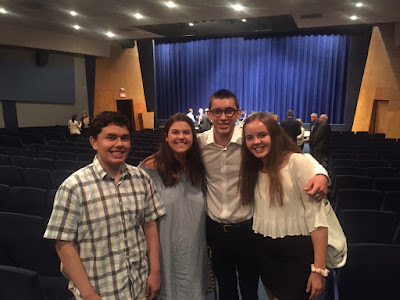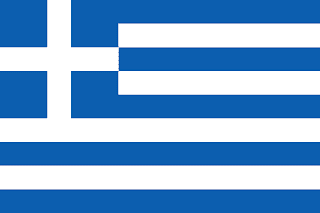LAWAC Event: The Future of Foreign Policy
On Tuesday evening three fellow Global Scholars and I had the opportunity to attend a Los Angeles World Affairs Council Event entitled “The Future of Foreign Policy.” The evening was a panel discussion featuring four conservative specialists in foreign policy moderated by LAWAC President Terry McCarthy. I was amazed at the disagreement in both the interpretation of historical events and strategy for current issues. Their positions were quite complex but I understand their overall messages to be as follows.
Robert “Bob” Kaufman, a political scientist and professor, tended to favor militaristic operations and stressed the balance between ideals and self-interest. He argued that the military budget is, in fact, small because it was only 4% of the GDP and the reason the Iraq war wasn’t successful was that we left too soon.
Dan McCarthy is an accomplished journalist, and he emphasized readiness and restraint in military conflict. He highlighted the key to military conflict in his opinion, which is to fight wars the public will support long enough to finish the war properly.
William Ruger of the Charles Koch Institute similarly emphasized restraint in relation to the military, but his main ideology was realism. He also pointed out that the success of the military is rooted in the success of our economy and therefore we should not overextend ourselves overseas.
Finally, Danielle Pletka, a senior VP of the American Enterprise Institute, argued that the US should stay engaged in foreign countries to prevent war and that we must use diplomatic and economic powers to do so. Additionally, she highlighted the need for advancing cybersecurity and a doctrine governing cyber conflict.
On their own, each of these speakers was extremely compelling, and I found myself, as a liberal, agreeing with their ideas. The contradiction among the panelists was an extremely influential facet of the event because it forced the attendees to choose who to trust or believe. Each panelist had drastically different views of facts and history, which led them to conflicting conclusions.
Attending this event was very eye-opening for me. I myself am a liberal Democrat, and I realized that the only time I hear the conservative perspective is through another source (such as a liberal newscast pulling clips of conservatives). When listening to the panel, I heard a few sound bites that would have been easy to take out of context and vilify the speaker, and that was an important reminder not to discount people based solely on one excerpt of their opinion.
One aspect of the event that I would like to point out is the extreme lack of diversity. Every panel member was white, and I counted a grand total of one audience member who was non-white. I think that it’s alarming that those interested in a party’s agenda do not nearly reflect the diversity of our nation. The platform of conservatives seems to take into account a far too narrow view of Americans. As an example, in response to a token young, non-white person’s question about whether we should be focused on fixing our own countries problems before policing others’, a panelist reaffirmed his opinion that we should focus on efforts abroad instead of domestic problems.
The panelists did not come to a conclusion to answer the question prompted by the event, “What defines conservative foreign policy in the ‘Age of Trump’?” Most of the panelists praised some things that Trump has done and disparaged others, which is an important reminder that political issues in America are not just two-sided.



Comments
Post a Comment